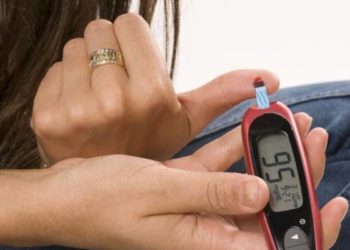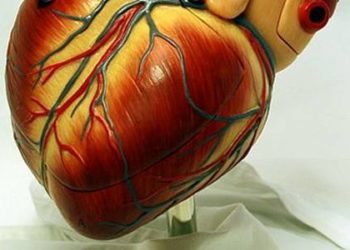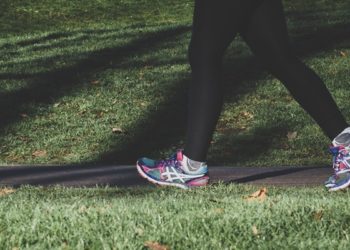Weight loss may decrease urinary incontinence in male diabetics [Look AHEAD Study]
Image: PD
1. Overweight or obese men with Type 2 Diabetes were shown to have decreased prevalence or resolution of urinary incontinence (UI) after one year of intensive lifestyle modification intervention (ILI).
2. Incidence of nocturia and urinary frequency were not improved compared to diabetic support and education (DSE), suggesting ILI and weight loss might not be relevant to the pathophysiology of these symptoms.
Evidence Rating Level: 2 (Good)
Study Rundown: Type 2 diabetes and obesity are implicated in the development of lower urinary tract dysfunction (LUTD) in men. This study attemped to elucidate the efficacy of weight loss intervention in the resolution of such symptoms, including urinary frequency, nocturia, and urinary incontinence (UI). Intensive lifestyle intervention (ILI) included weekly meetings, both group and individual sessions. The focus of the intervention was counseling and support regarding strict calorie control, diet modification, and escalating levels of exercise. The control group received a total of three diabetic support and education (DSE) didactic sessions focused on diet, exercise, and social support opportunities. Incidence and prevalence of LUTD was measured with several symptom-based questionnaires, including baseline and one-year assessments.
The primary endpoint of the Look AHEAD study was the effect of ILI on heart disease, and follow up was terminated in 2014, as ILI was not shown to be statistically significant in regards to this endpoint. This study therefore represents only a sub-group analysis. Those exposed to ILI lost considerably more weight than the DSE group, which showed almost no improvement in this area. Symptoms of UI decreased from 11.3% to 9.0% in the ILI group and increased from 9.7% to 11.6% in the DSE group (statistically significant differences). No significant treatment effect was found for symptoms of nocturia or urinary frequency. Although this indicates that ILI may significantly affect weight loss and thereby improve weight related symptoms of LUTD in men, these findings are not generalizable to the entire diabetic population. There is no discussion of cost of this intervention or cost-benefit analysis; however, NNTB for UI appears to be approximately 5, and the benefits of exercise and dietary counselling for the obese and diabetic population are already well known. While improvements in UI symptoms may not be the primary benefit of such intervention, they may be a significant motivation for some patients.
Click to read the study in Journal of Urology
Relevant Reading: The impact of obesity on benign and malignant urologic conditions
In-Depth [randomized controlled trial]: This study enrolled 1910 men age 45-76 at 16 centers between 2001 and 2014. All participants had diagnosed type 2 diabetes with a BMI of 25 or greater. Participants were excluded for baseline blood pressure 160/100mmHg or greater, triglycerides 600mg/dL or greater, HbA1c 11.0% or greater, a cardiovascular event within three months prior to study start, significant renal or pulmonary disease, or other conditions thought likely to limit adherence to the intervention. Baseline prevalence of UI in the population was 10.5%. Only 7% of study participants were lost to follow up. At one year the ILI group lost significantly more weight than the DSE group (9.4%+/-7.0% vs. 0.7%+/-4.5%, p < 0.001), and the ILI group had reduced prevalence of UI at one year (odds ratio (OR) 0.62, 95% confidence interval (95%CI) 0.43-0.88, p<0.01).
More from this author: Repeat Transrectal Prostate Biopsies May Increase Infection Risk; Combination therapy may improve urinary tract symptoms in BPH [CombAT Study]
©2012-2014 2minutemedicine.com. All rights reserved. No works may be reproduced without expressed written consent from 2minutemedicine.com. Disclaimer: We present factual information directly from peer reviewed medical journals. No post should be construed as medical advice and is not intended as such by the authors, editors, staff or by 2minutemedicine.com. PLEASE SEE A HEALTHCARE PROVIDER IN YOUR AREA IF YOU SEEK MEDICAL ADVICE OF ANY SORT.







